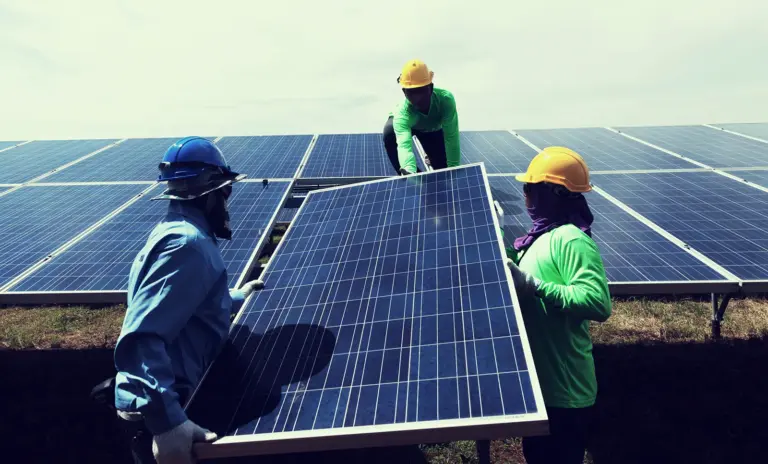As Nigeria aims for a 30% renewable energy contribution by 2030, the country is partnering with the Netherlands to expand solar power and rural electrification. A trade mission between Dutch firms and Nigerian stakeholders is expected to drive new investments, knowledge transfer, and long-term partnerships in the clean energy sector.
Rogier Van Tooren, Head of Mission at the Netherlands Ministry of Foreign Affairs, highlighted the Netherlands’ expertise in solar power despite limited sunlight, emphasizing Nigeria’s abundant solar resources as a key advantage.
“You have something very special that we envy in the Netherlands: abundant sunshine. The potential is enormous, and we are eager to contribute our expertise in optimizing solar power generation and grid solutions,” Van Tooren said.
Bengt Van Loosdrecht, Ambassador-designate of the Netherlands to Nigeria, stressed the need to remove investment barriers to attract international private sector players, ensuring Dutch companies can actively support Nigeria’s renewable energy transition.
“This market is too big and too interesting to ignore,” he stated.
Government Commitment and Investment Incentives
The Federal Government has reaffirmed its commitment to deepening private sector participation in renewable energy. Abba Abubakar Aliyu, Managing Director of the Rural Electrification Agency (REA), noted that Nigeria’s recently signed Electricity Act has created a more favorable investment climate.
“Nigeria has the highest number of people without access to electricity, but the present government is determined to turn this challenge into an opportunity,” Aliyu said.
To support this goal, Nigeria has allocated over $750 million to renewable energy projects, secured an additional $200 million from the Japan International Cooperation Agency (JICA), and earmarked $100 billion in the federal budget for solar energy initiatives.
Emmanuel Lonaza, Deputy Director of the Nigerian Investment Promotion Commission (NIPC), outlined key incentives, including:
A pioneer tax status granting up to five years of tax holidays for new investors.
A one-stop investment center to streamline business registration.
A renewable energy roadmap, with an updated Renewable Energy Master Plan targeting 8,000 MW of renewable capacity by 2025.
Regulatory Framework and Trade Facilitation
Umar Mohammed, Head of Renewable Energy at the Nigerian Electricity Regulatory Commission (NERC), detailed ongoing regulatory reforms, including:
- A renewable energy auction in collaboration with the World Bank.
- Net metering regulations allowing consumers to sell excess power to the grid.
- Support for state-level electricity regulatory agencies, with 10 states already implementing localized versions of NERC to attract investments.
Caroline Kemen Niagwan, Deputy Comptroller-General of Customs, assured investors of streamlined trade facilitation, including:
- Zero percent import duties on solar panels.
- Simplified customs procedures to ease logistics.
- The Authorized Economic Operator Program, launched in February, which fast-tracks clearance for compliant businesses.
“This initiative enhances security in the international supply chain and facilitates legitimate trade,” she explained.
With Nigeria’s ambitious renewable energy goals and a more investor-friendly environment, Dutch firms and global players have a unique opportunity to contribute to the country’s energy transformation.


